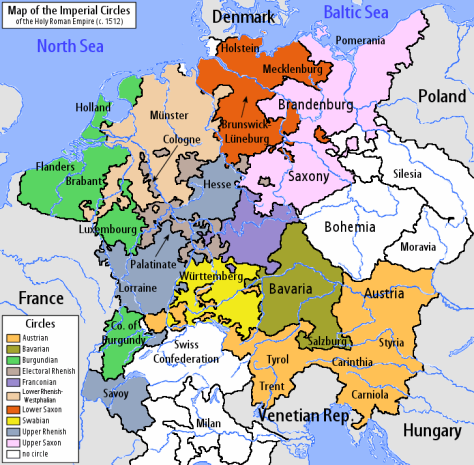I learned about Neil MacGregor when I saw his name in the History Book Club catalog. Searching for his name in the local library did not bring me the same book, but I was intrigued by the title Germany: Memories of a Nation. Reading the memoirs of Heros von Borcke, a famed Prussian cavalryman who served under Jeb Stuart, brought to my attention how little I knew of Germany’s history between Charlemagne and the Renaissance and between the Renaissance and World War II. With the thought that this book would help fill in those gaps, I plunged into it.
One of the considerable problems with writing a history of Germany is that Germany only first existed as a state in 1871 when Otto von Bismarck brought about unification. Prior to this point, the land we refer to today as Germany existed as a federation of states known as the Holy Roman Empire. Though having a ruler, the Holy Roman Empire, the individual states often pursued their own political and economic goals. How does one create anything like a comprehensive history such a loosely united principalities?
MacGregor unifies German history through its literature, artifacts, and major wars or political occurrences. We are taken on a tour of major cities, especially Berlin, and see the various cultural themes which unite the people of Germany. These pages are filled with German artifacts, paintings, and architecture.
Though the work appears quite large, the reading of it is rendered easier through its many photographs and well-written prose. I’d recommend this excellent work to anyone who wishes to get a sense of German history wider than what one receives in a European or World History course. It’s discussion of modern Germany and the impact of the two world wars shows many nuances usually passed over.
The only drawback for me was MacGregor’s praise of Banhaus’s and Marxist/modern artwork. I hate modern art: it becomes uglier and displays less skill by the year. Other than that, this is an excellent work to read.



